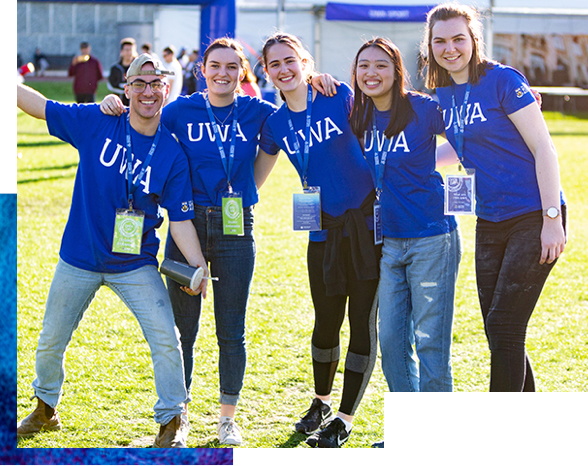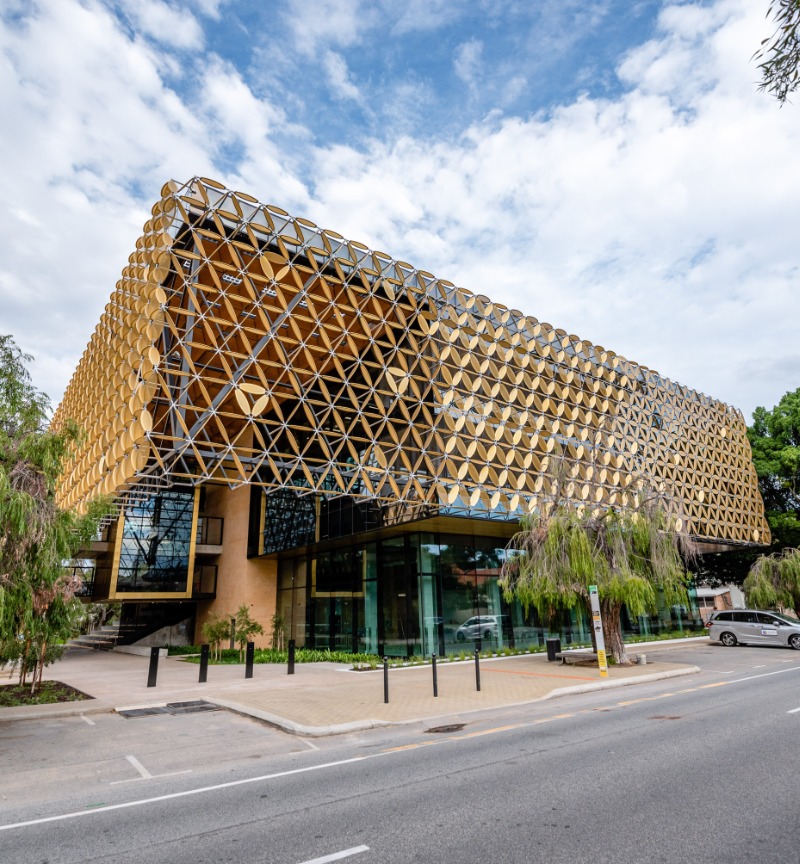Postgraduate
Master of Medical Physics
Contact us
Address
Student Central
The University of Western Australia (M355), 35 Stirling Highway, Perth, Western Australia 6009
Telephone
131 UWA (131 892)
International
(+61 8) 6488 1000
Hours
Frequently asked questions
Events you may be interested in
Show more eventsCareers and further study
Explore the career opportunities available to you.
Career Pathways
Completing this course will provide you with a solid base to pursue a career in healthcare, and science, within hospitals, clinics, academic institutions and industry. You will develop the knowledge, understanding and practical insight that will enable you to help diagnose and treat disease using techniques such as nuclear medicine, MRI, CT scanners, computer technology and radiation therapy.
Medical physicists can undertake roles in a tertiary public hospital or private medical service provider. Some of the career options available to a Medical Physicist graduate include:
- Medical Physics Registrar - The Master of Physics (Medical Physics) program provides students with the relevant knowledge and problem solving skills suitable for entry into the ACPSEM Training, Education and Accreditation Program (TEAP) in radiation oncology, diagnostic radiology or nuclear medicine. TEAP position are paid position and competitive. The accepted applicant will be in a registrar role for 3 to 5 years to become a qualified clinical medical physicist specialist.
- Research and Development - Positions may be available at tertiary education institutions or private scientific companies as researchers. Opportunities may be available for further study (PhD) or postdoctoral research positions. Academic positions may open in university settings for PhD graduates as lecturers.
- Radiation Safety Officers -There may be job opportunities in hospitals, clinics or industry (eg. mining companies) as a radiation safety officer.
- Government Bodies - As scientific officers or dosimetry officers (eg. ARPANSA), or radiation safety officers (eg. State Radiological Councils).
Fees and scholarships
Learn more about the fees that apply to you for this course.
Domestic Student Fees
For Full-Fee Paying places, students are charged an annual course fee, charged per credit point at a rate dependent on the course in which the student is enrolled. Annual course fees are calculated based on a standard annual study load of 48 credit points (1.0 EFTSL).
Check the handbook to confirm the annual study load for your course.
Visit the Fee Calculator and select your course type to find out more. Fees are subject to annual indexation.
More information on how fees are calculated.
Scholarships
Scholarships are available to students from a diverse range of backgrounds, including academic achievement, financial need, educational disadvantage, leadership and community service, artistic or sporting achievements, and being from a rural or remote area.
Cost of living
International Student Fees
Onshore international students are charged an annual course fee, charged per credit point at a rate dependent on the course in which the student is enrolled. Annual course fees are calculated based on an annual study load. Check the handbook to confirm the annual study load for your course.
Find out more about international student tuition fees and visit the fee calculator for the relevant course fees.
Fees are subject to annual indexation.
Scholarships
Scholarships are available to students from a diverse range of backgrounds, including academic achievement, financial need, educational disadvantage, leadership and community service, artistic or sporting achievements, and being from a rural or remote area.
Cost of living
Admission requirements
If you’re interested in furthering your career by studying this postgraduate course, find out the admission details below
Admission Requirements
Ranking and Selection Process
English competency
English is the language of instruction and assessment at UWA and you will need to meet the English language requirements of the University to be eligible for a place.
Minimum overall IELTS score of 6.5, with no band less than 6.0.
How to apply

Ready for the next step?
Find out how to apply through our simple online application process.
We'll guide you through our entry requirements, admission pathways available to you and application deadlines for your chosen course.
We can’t wait for you to join us!
Course details
About the course
Master of Physics (Medical Physics) - Domestic students
Domestic students may wish to enrol in: Master of Physics (Medical Physics)
Quick details
- Available 2023
- Perth (Crawley campus)
- Full-time
- On-campus
- Semester 1, Semester 2
- 16-25 hours per week
- Postgraduate
- 73660
- 111847G
Course structure
Postgraduate coursework degrees and combined (coursework and research) degrees comprise a number of units. Refer to the course structure for more information.
You'll learn to
- Understand the core subjects in medical physics and the latest technologies in the field
- Understand the fundamental concepts and applications of physics principles in medical diagnosis and treatment
- Become familiar with practical skills in the field of medical physics and learn analytical, communication and problem-solving skills by conducting research
Course Accreditation

The Master of Medical Physics (73660) is accredited by the The Australasian College of Physical Scientists & Engineers in Medicine (ACPSEM).
Why study this course?
- Allows international students to access overseas financial support from their supporting organisations.
Domestic students may wish to enrol in Master of Physics (Medical Physics) - Provides strong background knowledge in the field and prepares you for your future career
- Students will complete a research project on a medical physics topic that will develop your independent research and analytical abilities and give you understanding of current diagnostic and therapeutic technologies used in medical systems. You will have several optional units to choose from, to suit your individual interests
- With our strong partnerships with Sir Charles Gaidner Hospital and private centres across Perth, you'll be taught by leading clinical medical physicists who are operating at the forefront of the profession, giving you real-world learning on how medical physics problems are handled in the hospital environment


